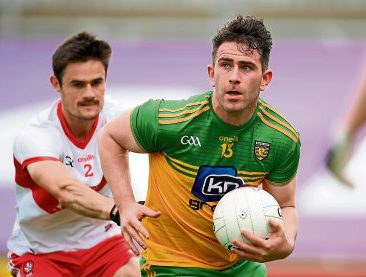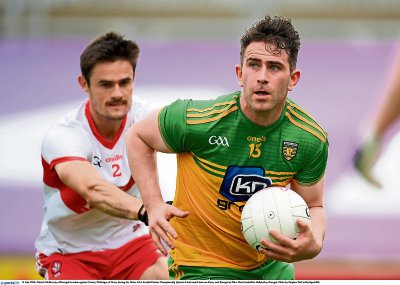WE all can recognise the importance of speed and acceleration in our games quite simply without the ability to generate significant force through the ground it will drastically diminish a player’s intentions of being regarded as an elite performer. But what about the act of decelerating (slowing down)? It is also crucial to any GAA athlete development plan.
Let’s look at typical deceleration examples in Gaelic games;
An inside forward taking a defender on at pace running from wide towards the goals, often you will have witnessed that sudden slowing in pace to cut back onto a preferred foot or to slow into a comfortable stride pattern that will allow the player to get his shot off with most ease. Brilliant exponents of this particular skill are Paul Mannion, Paddy McBrearty and Rian O’Neill.
Very rarely will a player take possession of the ball at full pace without receiving a pop pass off the shoulder, inevitably on the majority of occasions when a player has their back to goal, they will be receiving a pass in the deceleration phase.
As in they will have accelerated to evade and create space to receive the pass but will ease up to ensure the ball is trapped correctly.
Similarly, anyone performing man marking duties will speed up and slow down often reacting to the movements of their direct opponent, when analysing in game movement patterns it soon becomes obvious that Gaelic games are a continuous loop of stop start movements performed at a range of intensities.
It is commonly accepted that deceleration occurs more often than acceleration in team sport due to the unpredictability of games.
Therefore, we as coaches and players must pay attention to the mechanics of deceleration and look to execute accordingly in our practices.
Slowing down in a game setting is often under a very small-time constraint, to ensure this can be done safely athletes should have a good concept of deceleration mechanics, which of course can be imparted by a good field coach.
An athlete’s ability to decelerate can mainly be attributed to eccentric strength and neuromuscular control. Put simply good deceleration mechanics will include;
l Minimal trunk change
l Lower hip height
l Heel strike to full contact
l Arms can be used as braking levers
So how can we improve deceleration practices through coaching?
Basic accelerationdeceleration linear runs, with emphasis on key mechanics. Can then progress this into curvilinear runs, and reaction games based on controlled deceleration.
Final progression could then lead to an all-out light hearted game of chase or dodgeball where the specialised skill set of deceleration will never be more apparent as competitors stop and start to evade the chasers or the looming threat of size 5 O’Neill’s balls being hurled their direction.
To complement our on-field activities this can be backed up with specific strength training to include plyometric, unilateral and bilateral movements focussing mostly on the eccentric (lowering phase) and isometric movements.
The Isometric phase of an exercise refers to holding one position for a particular period of time. Its benefits for movement control are vast and should be incorporated into lower body strength exercises to improve deceleration control.
Example – adding a two-second hold at the bottom of a forward lunge will help focus on isometric strength and in turn will aid a more controlled stop on the pitch.
Gaelic games are fast evolving and the intensities at which our games are now played mean players need to be as robust as possible, the practises we carry out in the gym must marry with the intent we wish to show on field. Make sure you’re not getting left behind this pre-season.
Receive quality journalism wherever you are, on any device. Keep up to date from the comfort of your own home with a digital subscription.
Any time | Any place | Anywhere













